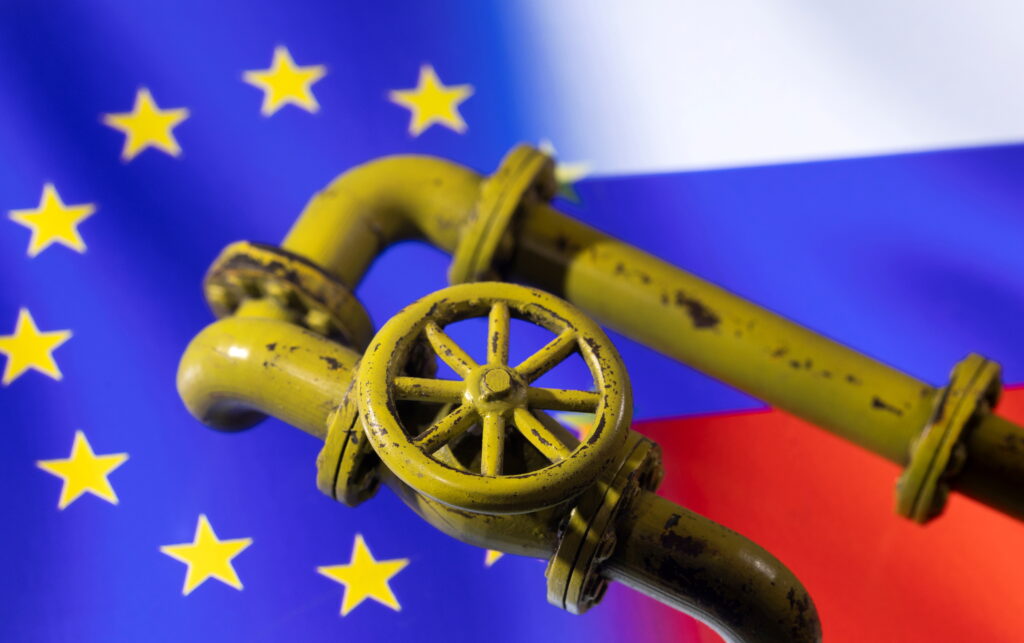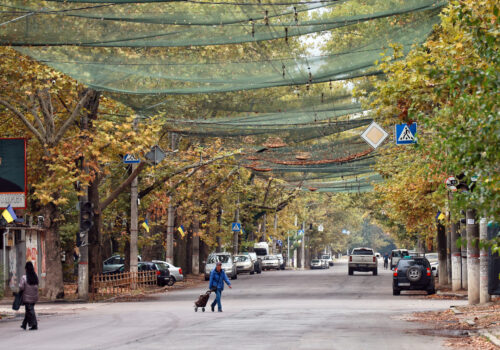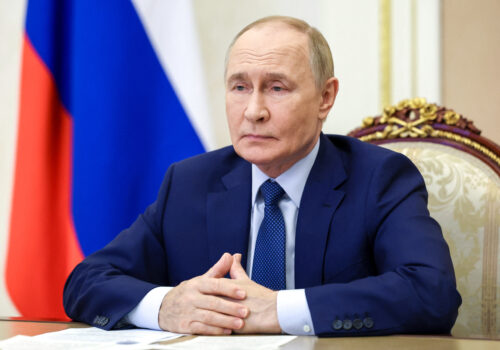In late October, the European Union moved to impose a full ban on Russian gas imports by 2028. After years of using energy exports as a political tool to blackmail Europe and fund the invasion of Ukraine, Moscow may finally be facing the loss of its last European costumers.
The decision to impose a complete ban on Russian gas is the latest stage in ongoing efforts to exclude the Kremlin from European energy markets. Since Russia began its full-scale invasion of Ukraine in February 2022, Moscow has lost nearly 80 percent of its European market share after curtailing supplies to undermine Western support for Ukraine. Even so, Russia has earned no less than €215 billion during the wartime period through the reduced but ongoing sale of gas to some EU clients.
EU policymakers now say European consumers can no longer bankroll Russia’s war budget. The move is timely because Europe could soon benefit from an abundance of liquefied natural gas (LNG) as the United States and Qatar are set to double their production in the upcoming years. However, there are still many challenges and possible loopholes that could stymie the process.
Stay updated
As the world watches the Russian invasion of Ukraine unfold, UkraineAlert delivers the best Atlantic Council expert insight and analysis on Ukraine twice a week directly to your inbox.
A number of legislative complexities will need to be addressed during negotiations to determine the final version of the ban, with talks expected to continue into next year. The European Commission published the first draft of the phaseout roadmap for imports of Russian pipeline and liquefied natural gas during summer 2025. The document stipulated that short-term contracts of less than a year would be discontinued in 2026, while longer-term contracts would be terminated by January 2028.
The draft proposal raised some eyebrows, particularly due to the introduction of an article suggesting that the ban could be temporarily lifted in case of market emergencies. Contrary to expectations, the clause was not pushed through by Hungary and Slovakia, the EU’s most Kremlin-friendly Russian gas buyers. Instead, it was introduced under pressure from Spain, where several companies still hold long-term LNG import contracts with Russian producers.
The text has been reviewed by both the European Parliament and the Council of Ministers, with the former pushing for even more ambitious terms. For example, MEPs would like to see all imports terminated by 2027, a year earlier than initially stated by the European Commission. They also insist on closing loopholes by targeting circumvention risks.
The draft version adopted by the Council of Ministers aligns to a large degree with the version circulated by the European Commission and continues to include an emergency brake. The final text will have to be negotiated as part of talks involving the European Parliament, Council of Ministers, and European Commission.
To further complicate matters, the EU recently adopted its nineteenth Russian sanctions package, which includes a ban on Russian LNG imports from 2027, a year earlier than the deadline proposed by the EU’s own phaseout roadmap. This fast-tracked LNG ban was likely introduced in response to pressure from US President Donald Trump, who has singled out Europe for continuing to buy Russian fossil fuels.
While this sanctions-mandated ban may lead to an earlier block on Russian LNG exports, many observers fear that it is insufficiently robust and could be overturned, since EU sanctions are up for review every six months and require unanimous backing in order to be extended. This means the fast-tracked LNG ban could be vulnerable to opposition from any individual EU member.
Eurasia Center events

While the legislative path toward a full EU ban on Russian gas imports remains long and complex, enforcement may prove even more difficult. The ban enjoys strong political backing across Europe, but there are widespread concerns that the Kremlin will try to identify potential loopholes to evade the ban.
Russian gas is currently exported to Europe via the Black Sea and Turkey, using a dedicated pipeline transporting the gas to the Balkans and Hungary. The EU has included this entry point in legislation and notes that flows must stop from 2028, but Russian gas arriving in Turkey via an interconnection point nearby could be relabelled and sold under a different name. The risk of relabelling Russian gas also extends to the entire bloc because there are still a number of companies with large import portfolios which hold long-term LNG contracts with Russian producers.
Regulations related to the enforcement of the EU ban, including penalties for potential breaches, will need to be reviewed and tightened up. Existing EU proposals may not be sufficient, while it is still unclear how violations will be penalised. This must be addressed in order to deter non-compliance.
EU officials are well aware that Moscow will fight efforts to exclude it from lucrative European markets. Deprived of fossil fuel revenue and with its economy facing mounting difficulties, the Kremlin will seek any opportunity to continue selling oil and gas to Europe. Allowing loopholes to remain could create large grey areas in European energy markets that would fuel Russia’s war in Ukraine and allow the Kremlin to retain leverage over Europe.
Dr. Aura Sabadus is a senior energy journalist who writes about Eastern Europe, Turkey, and Ukraine for Independent Commodity Intelligence Services (ICIS), a London-based global energy and petrochemicals news and market data provider. Her views are her own.
Further reading
The views expressed in UkraineAlert are solely those of the authors and do not necessarily reflect the views of the Atlantic Council, its staff, or its supporters.

The Eurasia Center’s mission is to enhance transatlantic cooperation in promoting stability, democratic values, and prosperity in Eurasia, from Eastern Europe and Turkey in the West to the Caucasus, Russia, and Central Asia in the East.
Follow us on social media
and support our work
Image: REUTERS/Dado Ruvic/Illustration





